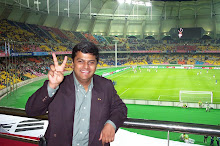A few days back, there was a post floating on social media about the government asking opinions about how we can teach our correct history. If we want to create youngsters who can make history you need to educate them and make them understand the history and be a part of the progression of Humanity. Here I do not want to get into any debate about nationalism or anything about the dividing lines of History. I know some people think that not teaching History will erase conflicts. Though I do not want to argue this line of thoughts I want to highlight some positive things we can learn from the US system. There is a huge debate even in the US about the wrong focus of the US to exclude controversial topics. But even that is beyond the scope of this post.
I had read HG Wells as a teenager. I watched a few movies like Back to Future which focused on hyper-local history or series like Making History which focused on American revolutions. I conclude that the best way to teach history is through Time travel. As a teenager, I wanted to invent the machine and pack it in my rucksack and then climb Rajgad and set the console to the year 1650 to experience the best thing that happened in modern Indian History. I then wanted to set the console to various years from 1857 till 1947 to witness sacrifices made by real patriots like Tilak, Lala Lajpat Rai, Pal, Bhagat Singh, and his team, Azad, Savarkar, Patel, Netaji Bose just to mention very few among the score of unknown heroes. I also wanted to witness the golden era from the 10th century BCE till 10th Century CE. This was the time when India was the center of the world with the highest % GDP of the world and had centers of Knowledge and civil rule. This golden era was plundered by the invaders and corroded by internal divides created for personal gains by few and unscientific tempers systematically implanted among masses creating ignorance.
The next best thing to Time Machine as a tool is to understand how they teach in countries like the USA. Students are first introduced to a stand-alone history class in 5th or 6th grade. US History, World History, and Geography are the typical offerings.
In the HighSchool, the state's expectation is the desire to produce informed citizens. The US systems offer courses that build upon each other and electives. Students generally are required to take a minimum of 3 years of Social Studies credit and they are required to pass Civics and US History to graduate. They offer Western Civilizations I and II, United States History, AP Euro, AP US, AP Gov. and Politics, Psychology, Current Events, Civics, Law & Order, and Advanced American Studies. (AP is Advanced Placement ie college-level courses)
The scope of the Western Civilization course starts from the Greek and Roman Empires, covering the middle ages and then Renaissance and Exploration of the New World. American History starts from Pangea's to Beringia Strait where humans theoretically entered American Continents, Indian History, Colonial Era, Colonies, American Revolution, Civil War, World War, Civil Rights movement, Cold war, 9/11, Economic Depression. The teaching methodologies include Projects, Roles took by students in history, Socrates' seminars, Exams, assignments also are thought-provoking as against memorization we have in India. It would be very interesting to follow your child doing all this as a parent.
I had a chance to interact with a History Teacher, who had taken it upon herself to ensure that the students are provided with a sound foundation in terms of historiography and understanding historical bias. In her own words: “This is a natural extension of my own experiences at the college level. Informed citizens must be able to evaluate information presented to them with a critical eye. This is an important life skill and is why I place such importance on it. I have been told before by my students that this is the first time that they have been told that history is what historians say it is. We discuss these items in Socratic Seminars (Debates). This is where we hone our critical thinking and argumentation skills”.
It is an expectation that the curriculum is updated regularly, but there is no hard and fast deadline. Courses are revised every few years. However, teachers make small changes to how the curriculum is delivered on a regular basis based on individual reflection and collaboration with teachers teaching the same course. Departments typically guide the revision process with administrative oversight. Yes, the ruling governments here have a say in the matter as we have in India.
No wonder students find History interesting and equipped to analyze history independently as compared to what we have government-sanctioned chapters and dreadful memorization. Even then some people are very critical of US education despite all efforts taken.
Debates over history-class outcomes surface periodically in the U.S. Such controversies are usually about a prescribed set of historical facts, subjects, and themes about America that students ought to know, be it American Exceptionalism or the civil rights movement. Similarly, it was noticed that students did not remember what they should really have: the Louisiana Purchase, the judicial precedent set by Marbury v. Madison, reasons why Loyalists opposed independence, and so on.
In India, we have a total blank about the Golden Era I just mentioned: between the 10th Century BCE till 10th Century CE. Though the Scope of Indian History is very huge compared to the US History or even Western Civilization for that matter we need an innovative approach to be able to create that understanding and outlook in the young minds to choose his/her area of interest in History.
We in India are quick to imitate everything from the US, let's try to do that by learning how they teach History. Going as per much controversial slogan in the Indian context: let's Make Learning History Great Again.



No comments:
Post a Comment